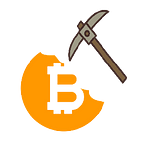Enterprise Ethereum looks to open-source community for standards
Ethereum is swiftly establishing itself as a critical component of the enterprise blockchain ecosystem. It’s crucial to remember that the enterprise Ethereum market is still relatively new as more organizations begin to use public networks for business. As a result, a number of advancements are required before businesses can fully benefit from the Ethereum blockchain.
For example, Dan Burnett, executive director of the Enterprise Ethereum Alliance — a project that enables businesses to integrate and apply Ethereum technology in their day-to-day operations — told Cointelegraph that Ethereum usage, deployment, and application are all on the rise. As a result, Ethereum is evolving into a reliable commercial chain.
However, as Burnett pointed out, standardization work has grown increasingly vital as Ethereum matures. The problem is that corporate Ethereum standardization must take into account Ethereum’s open nature while also addressing proprietary business implementations.
Standards
The Enterprise Ethereum Alliance (EEA) and Oasis Open, a group dedicated to advancing the development of open-source software and standards, announced the launch of “EEA Community Projects” today in order to appropriately drive standards development for enterprise Ethereum.
EEA Community Projects, according to Burnett, was created to combine traditional standards development with open-source software standards. According to Burnett, a combination of these two development standards is required to promote enterprise Ethereum adoption:
“With Ethereum, there has always been this interesting tension between the development community, which is open and individually driven, and the enterprise side, which is commercially driven and often deals with regulations and complexity. The EEA Community Projects is bringing together proprietary standards implementation with open-source standards that develop in the Ethereum community at large.”
Importance of Standards
To put the need for standards in context, Burnett pointed out that one of the reasons Ethereum has grown so valuable is that the network is not controlled by a single entity. However, once this benefit is realized, he predicts that Ethereum ecosystem participants will form partnerships with various businesses to assure interoperability.
Baseline Protocol is an example of standards being utilized for interoperability, according to Guy Martin, executive director of Oasis Open. The Baseline Protocol uses messaging, zero-knowledge cryptography, and the Ethereum blockchain to let organizations manage private workflows.
According to Martin, Baseline effectively took its API and used it as the backbone for its standards to assure interoperability amongst computer languages. As a result, “it must be written in different languages and used in different environments.” He further added, “Standards is that template and agreement that allows interoperability and other things to happen.” Burnett further stressed that the EEA Community Projects will not seek to endanger the work that the Ethereum community has already done:
“We haven’t made governance changes that have decreased the openness, transparency and community-driven nature of the work. It took us a while to figure out how to ensure that all constituencies are happy and to make sure that no one is taking over the network or changing it in any way.”
With this in mind, it’s also critical to comprehend why open source standards are required for corporate Ethereum development. According to Anas Ofranc, the lead for the Oasis Open Baseline Protocol standards and specifications working group, open source is the most practical and credible strategy for the EEA to support enterprise Ethereum development and adoption — both on the technical and standard side:
“Open source lowers/removes the barriers to collaboration, so it is a great way to get input from a variety of actors, to explore various industry use cases, and to explore enterprise applications of Ethereum blockchain technology. It is also an effective way for the EEA to surface the work they have been doing.”
While Ofranc also pointed out that the right contributors — both individuals and businesses — are required for open-source standards to be effective: “There is so much competition for talents and experience in the blockchain space that contributors will need to justify the time and effort spent on working on enterprise-blockchain projects.”
Despite the issues that standard implementations may provide, it’s worth noting that the enterprise Ethereum field has matured to the point where standards are now essential. Once Ethereum 2.0 is finalized, enterprise Ethereum standards will very certainly be crucial. The formation of EEA Community Projects, according to John Wolpert, chair of the technical steering committee at Baseline Protocol and vice-chair of the mainnet working group at EEA, is crucial because it indicates how the proper and practical usage of Ethereum in enterprise is growing:
“Now we have a premier industry body working hand-in-glove with a premier IT standards organization and involving a wide community of individual and corporate-based developers and architects in establishing standards for verified multi-party workflows using the public Ethereum mainnet as a verification anchor.”
Burnett feels that the work of the EEA Community Projects has the potential to reach worldwide standards organizations in the future. “This provides a great opportunity for us to work at the grassroots level and then advance to a more corporate environment that larger enterprises would be comfortable with.”
